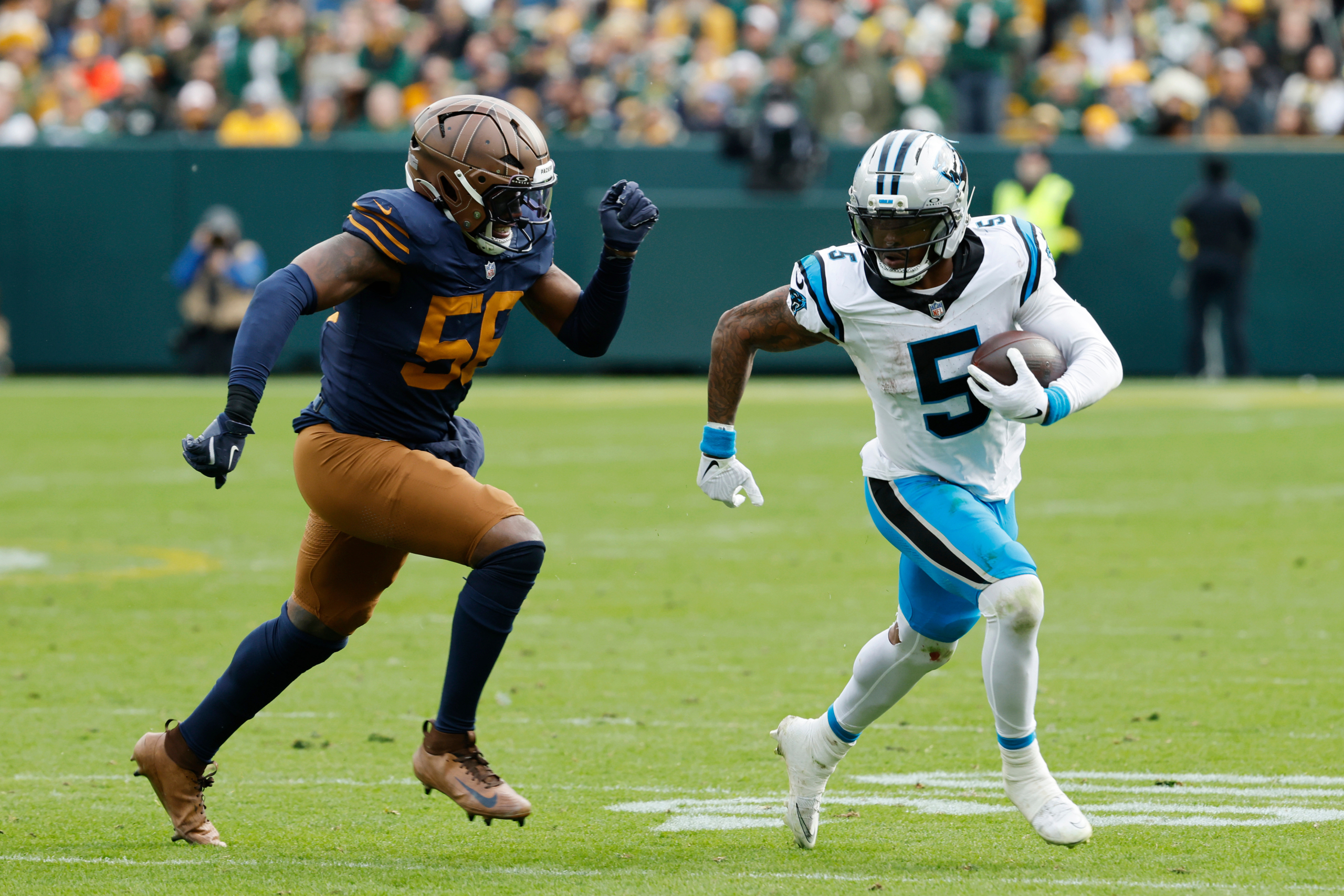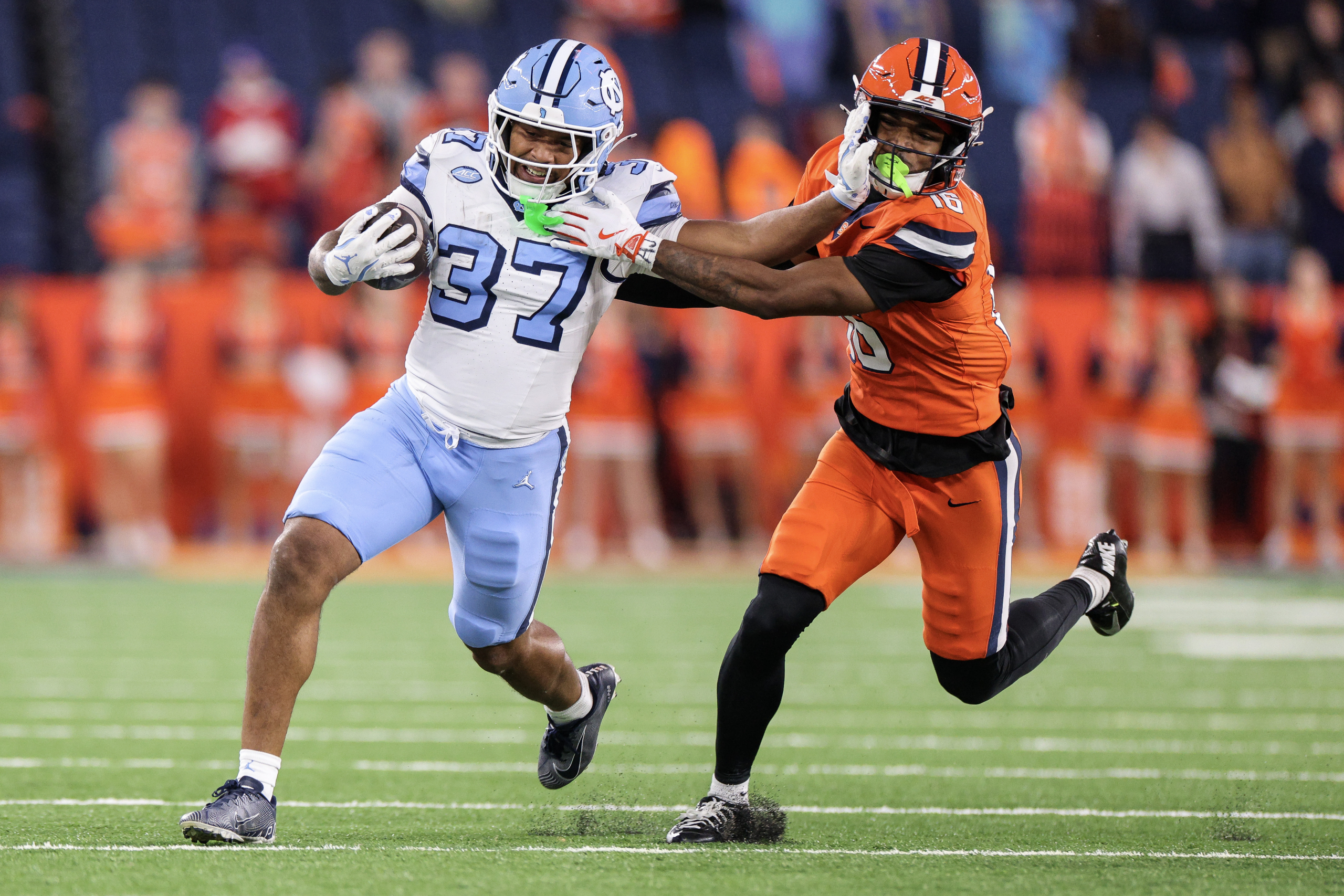By STEVE MEGARGEE AP Sports Writer
GREEN BAY, Wis. (AP) — Rico Dowdle rushed for 130 yards and two touchdowns, and his big run in the final minute set up Ryan Fitzgerald’s last-second 49-yard field goal as the Carolina Panthers beat Green Bay 16-13 on Sunday to snap the Packers’ three-game win streak.
The loss could prove costly for Green Bay (5-2-1). Packers star tight end Tucker Kraft was carted off the field with a knee injury in the third quarter.
Carolina (5-4), a two-touchdown underdog according to BetMGM Sportsbook, bounced back from a 40-9 home loss to Buffalo to get back over .500.
Dowdle had been splitting time with Chuba Hubbard, but Panthers coach Dave Canales said Dowdle would get the bulk of the carries, and the move paid off.
Running behind an injury-riddled offensive line, Dowdle responded with a brilliant 25-carry performance that included one big mistake.
His second touchdown of the day gave the Panthers a 13-6 lead late in the third quarter. But he celebrated that score by thrusting his hips twice, an apparent reference to a “Key & Peele” sketch, and was called for unsportsmanlike conduct.
Fitzgerald’s ensuing 48-yard extra-point attempt into a swirling wind was well short, keeping Carolina’s lead at 13-6.
Dowdle and Fitzgerald both redeemed themselves after Green Bay’s Josh Jacobs scored a tying touchdown from 2 yards out on third-and-goal with 2:01 left. Rather than having to go for 2 to tie the game, the Packers evened the score on Brandon McManus’ extra point.
After Carolina got the ball back, Dowdle’s 19-yard carry on second-and-10 from midfield got the Panthers in field-goal position, and the rookie kicker from Florida State came through as time expired.
Before Jacobs’ touchdown, the Packers had marched inside the Carolina 35 on five of their first six possessions but had only twe field goals to show for it.
Green Bay entered the day with just three turnovers all season, matching Philadelphia for the lowest total in the league. Savion Williams had a red-zone fumble that thwarted a scoring opportunity, and Jordan Love threw an interception that led to a Carolina touchdown Sunday.
McManus converted from 49 and 27 yards out but also missed a 43-yarder that would have put Green Bay ahead in the third quarter. Dowdle’s second touchdown came after Green Bay’s Keisean Nixon was called for pass interference on a third-and-goal incompletion.
Green Bay also passed up a short field-goal attempt while trailing 13-6 in the fourth quarter and went for it on fourth-and-8 from the Carolina 13. Love rolled to his right, couldn’t find anyone open, headed way to his left and then threw across the field. Carolina’s Mike Jackson dropped the ball in the end zone.
Love was 26 of 37 for 273 yards with one interception on his 27th birthday. Jacobs had 17 carries for 87 yards.
Injuries
Panthers: OG Chandler Zavala (elbow) departed in the first half. LB Trevin Wallace left late in the fourth quarter. C Cade Mays (ankle/knee) and OLB Princely Umanmielen (ankle) didn’t play.
Packers: Along with the injury to Kraft, WR Matthew Golden (shoulder), OG Aaron Banks (stringer) and DL Colby Wooden (shoulder) all left the game. WR Dontayvion Wicks (calf) and DE Lukas Van Ness (foot) were out for a second straight game.
Up next
Panthers: Host New Orleans next Sunday.
Packers: Host Philadelphia on Monday, Nov. 10.















